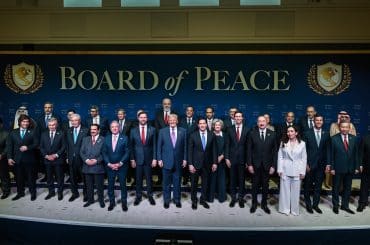
On May 5th, the Wesleyan Student Assembly (WSA) voted to divest its own endowment holdings from companies that profit from Israeli colonization of Palestinian land. The resolution, passed by a large majority vote, specifically calls for divestment from companies that,
“a) provide weaponry, security systems, prisons, or other military support for the illegal occupation of the Palestinian territories; or b) facilitate the building or maintenance of the illegal Separation Wall or the demolition of Palestinian homes; or c) facilitate the building, maintenance, or economic development of illegal Israeli settlements, outposts, and segregated roads and transportation systems on the occupied Palestinian territory (Gaza Strip, West Bank, and annexed East Jerusalem); for the purpose of removing the financial incentive to participate in the illegal occupation and exploitation of indigenous Palestinians and their land”
While the WSA endowment is independent from the University endowment it currently holds some investments in the University endowment. As such, in keeping with the goal of the resolution, the WSA will ask the University endowment to divest from companies violating the newly-passed resolution. If the University endowment does not agree, the WSA will withdraw its investments from the University endowment.
Passing a resolution supporting divestment is a strong move from the Wesleyan student body, and one that might not be met with support by the Wesleyan administration. When it approached Wesleyan’s Director of Communications for a comment, The Electronic Intifada was told, “Wesleyan won’t be commenting on the vote by the student association.” Further silence has also (so far) come from Wesleyan President Michael Roth, who, last January, was quick to issue a deeply flawed censure of the American Studies Association’s resolution to support the BDS movement. His flimsy and flippant response was met with harsh criticism from Wesleyan alumni, students, and parents—which has perhaps encouraged him to take a more mindful approach in his response to the WSA resolution.
With the passing of the divestment resolution, Wesleyan student representatives have taken a stand of neutrality—ensuring their money does not participate in Israel’s ongoing, illegal colonization of Palestinian land. In the context of Israel/Palestine, such neutral non-participation is often misconstrued—or intentionally mislabeled—as ‘taking a side’ (read: being ‘pro-Palestinian’; read: being ‘anti-Israel’; read: being ‘anti-Semitic’). However, neutral non-participation, in this context, simply means choosing not to participate in supporting Israel’s illegal practices. It means choosing to abide by the stipulations of International Law and Human Rights Law. It means choosing not to participate in an oppressive system that necessarily denies equality between people. Further, it is in line with Wesleyan students’ ongoing commitment to battling the oppressive systems of the industrial prison complex and to non-violently protesting war. Notably, the resolution does not include the words ‘support’ or ‘rights’ in it anywhere. Their omission is important, as ‘support’ would reveal an active backing, and any mention of Palestinian ‘rights’ is often immediately misrepresented as an attack against Jewish Israeli rights. Their ommision suggests an intent to remain neutral, while withdrawing support for Israel’s illegal activities in the occupied Palestinian territories (oPt). In fact, the only mention of ‘rights’ came in an approved amendment to the resolution, “affirming the rights of all people to autonomy, security, and self-determination.” The resolution does not even endorse the BDS movement. It simply states that WSA money will not be invested with companies that participate in illegal activities in the oPt.
The WSA’s stance puts the Wesleyan administration in an interesting position. Support for divestment from companies profiting from Israel’s illegal activities in the oPt is gaining momentum on campus. In March, a petition calling for full divestment from companies profiting from Israeli colonization garnered signatures from over 25% of the student body. Now the WSA has made its position clear and may withdraw its funds from the University endowment if it does not comply with the WSA resolution. The student body is asserting its position of compliance with international laws and non-participation in illegal actions. How long will it take for the administration to fall in line and divest from companies whose products contribute to illegal activities or who directly participate in illegal activities? Wesleyan was a hotbed of student protest and civil disobedience decades ago to pressure the administration to divest from companies supporting South Africa’s apartheid government. In fact, Wesleyan’s current president was one of those protestors. It will be interesting to see how the University endowment and the administration respond to the WSA’s resolution. Will it continue to silently ignore the WSA resolution? Or will it open up to consider and possibly implement divestment? The WSA’s resolution may well set the stage for a greater push for divestment come the fall semester.


Commendable. I hope this gets attention. But I wonder whether it will.
Yesterday, while listening to “The World” on the local NPR station, I heard the announcer introduce a story by saying that “divestment” used to be about South Africa. “Now,” he said, “it is again a growing movement, but this time about . . . ”
Here, I expected him to say “Palestine” or “The West Bank” or “Occupied Territories.” But no, it was about Stanford’s decision to tell its asset managers to avoid investing in coal. The story was about environmental concerns.
All well and good, I suppose, but a bit of a let down.
Whether Wesleyan University divests or not, it won’t have a major economic effect.
But the campaign for BDS provides an opportunity for educating students about Israel’s treatment of the Palestinians. The BDS campaign provides students with an opportunity to say “we disapprove” to Israel’s policies. And if the BDS campaign is unsuccessful this year, it will be back next year making its case. In that sense, the BDS campaign is winning.
No wonder the Israeli govt is very worried, even while publicly proclaiming that BDS won’t succeed.
Well here a bit of good news—-that indicates change….
News Brief
”For UCLA student gov’t candidates, free trips to Israel are out”
May 8, 2014 4:23pm
(JTA) — Several candidates running for officers of the undergraduate student government at UCLA signed a pledge not to go on free or sponsored trips to Israel.
The hopefuls on two of the three slates signed the Joint Statement on Undergraduate Students Association Council Ethics, which asks council members to refrain from taking free or sponsored trips with the American Israel Public Affairs Committee, or AIPAC, the Anti-Defamation League or Hasbara Fellowships, the Daily Bruin student newspaper reported earlier this week.
The statement was drafted by members of Jewish Voice for Peace, the Armenian Students’ Association and Students for Justice in Palestine.
In February, the undergraduate student government at the University of California, Los Angeles, rejected a resolution brought by Students for Justice in Palestine calling for divestment from five American companies whose products are used by the Israeli army in the West Bank. The 7-5 vote followed an all-night meeting.
Four Bruins United council members who were vocal in opposing the resolution had gone on free or sponsored trips to Israel or attended AIPAC conferences, according to the Daily Bruin
Read more: http://www.jta.org/2014/05/08/news-opinion/united-states/for-ucla-student-govt-candidates-free-trips-to-israel-are-out#ixzz31BEmCmTp